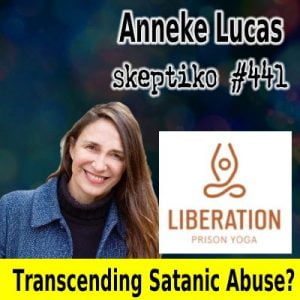Unpacking Anneke Lucas’s Powerful Narrative on Skeptiko: A Deep Dive into Trauma, Denial, and Healing

Narrative Credibility: Believing the Unbelievable
The interview begins with a critical assessment of Lucas’s credibility. Sold into sex slavery at a tender age, her story initially met with skepticism. This skepticism underscores a broader societal reluctance to accept such distressing narratives, especially when they implicate powerful individuals. The conversation navigates through this skepticism, eventually acknowledging the harsh realities of Lucas’s experiences, thereby highlighting the struggle victims often face in seeking validation for their traumatic experiences.
Victim Blaming and Collective Denial
Lucas articulates the societal tendency to dismiss or blame victims of severe crimes. This point of debate sheds light on a larger issue: the collective denial of uncomfortable truths, especially in cases involving influential figures. The discussion underscores the need for societal acknowledgment and support for victims of such heinous crimes.
Extended Consciousness vs. Immediate Reality in Trauma
Alex Tsakiris’s interest in extended consciousness contrasts with Lucas’s focus on the tangible, real-world implications of her trauma. This divergence presents a thoughtful debate on the importance of addressing both the spiritual and practical aspects of healing from trauma, emphasizing the need for a holistic approach.
The Media and Science’s Role in Acknowledging Abuse
The conversation turns to the failure of science and media in recognizing and reporting child abuse and sex trafficking cases. Lucas suggests systemic inadequacies and possible complicity, driven by fear or vested interests, sparking a debate on the responsibilities of these institutions in shedding light on such crimes.
Understanding Psychopathy in Positions of Power
The dialogue explores the concept of psychopathy, particularly among those in power, and its relation to child abuse. Lucas’s view that these individuals are emotionally infantile opens a discussion on the nature of evil, power, and their impact on societal structures and individual lives.
Yoga as a Healing Modality for Trauma
Lucas discusses using yoga and spirituality as tools for healing from trauma. The debate here revolves around the effectiveness and potential misuse of such practices. Can yoga truly address deep-seated trauma, or does it risk being a method of avoidance? This segment provides insights into the complexities of healing and the search for meaning post-trauma.
Physical vs. Extended Realms in Addressing Trauma
The discussion concludes with a look at the balance between physical means (like yoga) and acknowledging extended realms of consciousness in healing from trauma. This raises the question of what healing looks like in the context of such profound experiences and the role of different approaches in facilitating this process.
Also read: Anneke Lucas Biography
For more detailed insights and to hear the powerful story of Anneke Lucas, tune into her interview on Skeptiko. Here’s an Original Title of the podcast – Anneke Lucas, Recovering From Unimaginable Evil |441| to the full episode.





